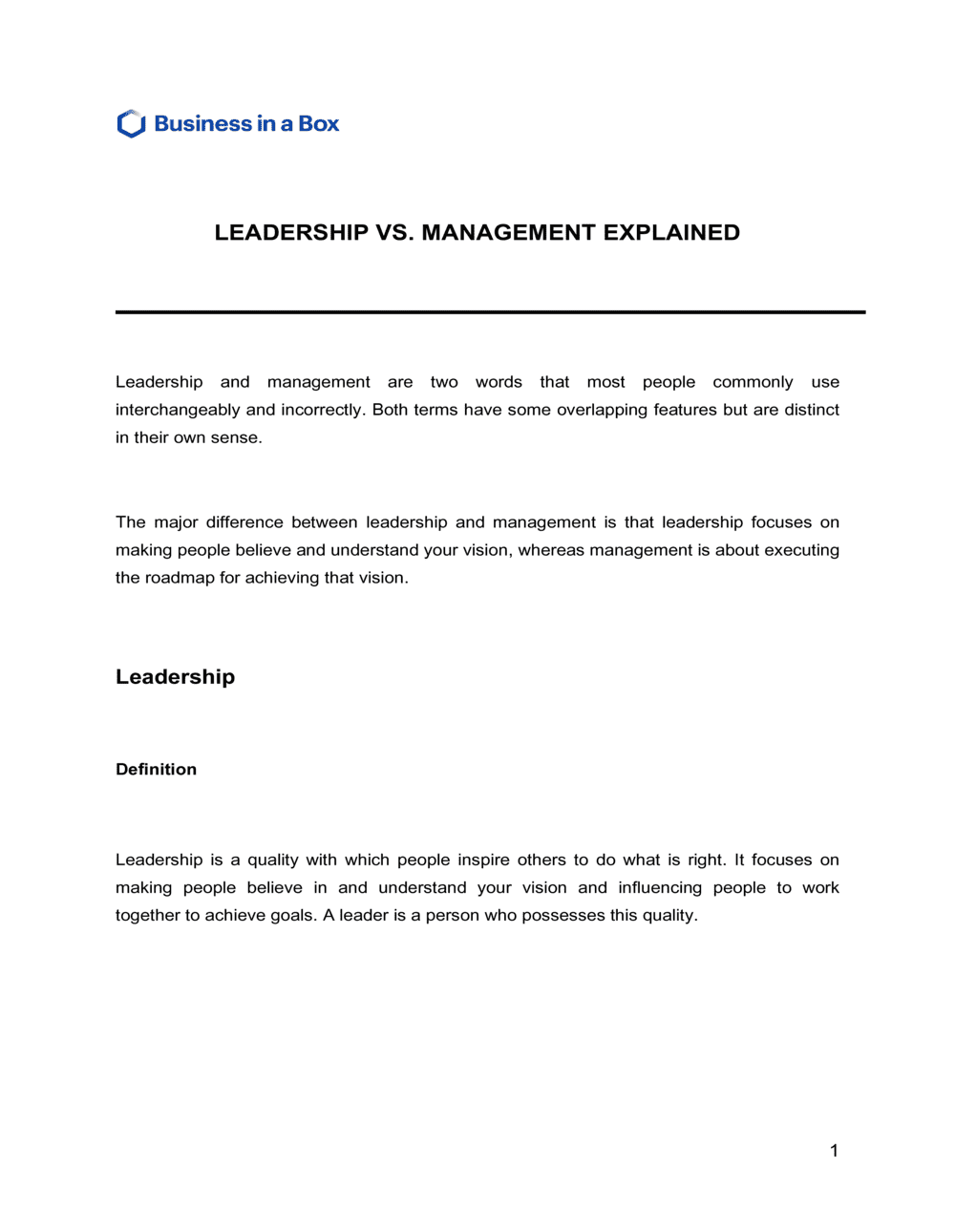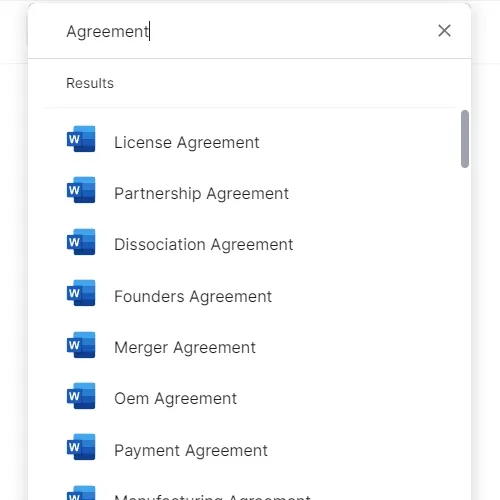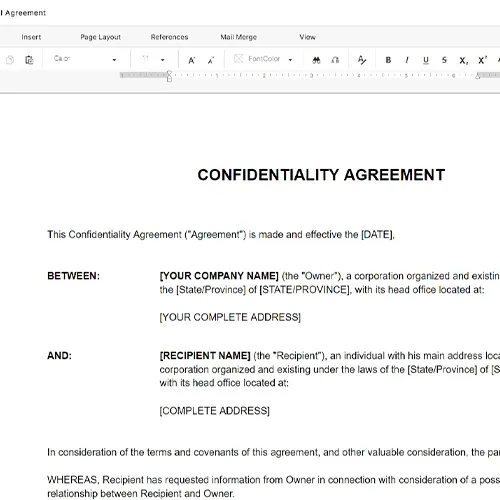Leadership VS Management Explained Template

Document content
This leadership vs management explained template has 8 pages and is a MS Word file type listed under our business plan kit documents.
Sample of our leadership vs management explained template:
LEADERSHIP VS. MANAGEMENT EXPLAINED Leadership and management are two words that most people commonly use interchangeably and incorrectly. Both terms have some overlapping features but are distinct in their own sense. The major difference between leadership and management is that leadership focuses on making people believe and understand your vision, whereas management is about executing the roadmap for achieving that vision. Leadership Definition Leadership is a quality with which people inspire others to do what is right. It focuses on making people believe in and understand your vision and influencing people to work together to achieve goals. A leader is a person who possesses this quality. Role of a Leader A leader promotes the development of talent and innovation. Their prime focus is on team-building exercises to promote a unified culture. Leaders also maintain interpersonal relationships within and outside an organization. Good leaders are risk-takers and aggressive innovators, while also ensuring rewards for all stakeholders. Traits of a Leader Vision Leaders have a vision and work towards achieving it. They involve and motivate the team in determining the direction and future of this vision. Inspiration Leaders are a natural inspiration to their teammates to understand the bigger picture and work towards it. Integrity Leaders are supposed to be honest in their decisions. Ability to Challenge A leader should be one who can challenge the status quo. Skills of a Leader The most basic and important skills a leader should possess are: Thoroughness Motivation Flexibility Team building Risk-taking Commitment Empathy Communication Trustworthiness Feedback Management Definition Management is commonly defined as the process used to get people of different ages and skillsets to work in tandem to achieve a common goal. A manager is responsible for all management activities and should be able to plan, organize, lead, staff, control, and coordinate the team's efforts. Role of a Manager The role of a manager is to clearly communicate the policies and philosophies of the organization to the employees. Like a leader, a manager is responsible for maintaining interpersonal relations within the organization. A manager's duties are such that they require regular attention. Traits of a Manager Create a Vision A manager's role is to create a strategic vision. They then break this vision down into simpler roadmaps for the team to implement and follow. Coordination A manager is solely responsible for ensuring that the team delivers its day-to-day activities. Process Management Managers are equipped with the power and authority to lay down rules and operating procedures. People-focused A manager is responsible for making sure that the team feels heard and involving them in critical decisions to increase their productivity. Skills of a Manager Important skills a manager should possess are: Leadership skills Interpersonal skills Technical Coordination Analytical Forward planning Communication Mentoring Time management Delegation Commercial awareness Leadership vs. Management - Key Differences Vision vs. Process Leadership is based on a vision
3,000+ Templates & Tools to Help You Start, Run & Grow Your Business

Document content
This leadership vs management explained template has 8 pages and is a MS Word file type listed under our business plan kit documents.
Sample of our leadership vs management explained template:
LEADERSHIP VS. MANAGEMENT EXPLAINED Leadership and management are two words that most people commonly use interchangeably and incorrectly. Both terms have some overlapping features but are distinct in their own sense. The major difference between leadership and management is that leadership focuses on making people believe and understand your vision, whereas management is about executing the roadmap for achieving that vision. Leadership Definition Leadership is a quality with which people inspire others to do what is right. It focuses on making people believe in and understand your vision and influencing people to work together to achieve goals. A leader is a person who possesses this quality. Role of a Leader A leader promotes the development of talent and innovation. Their prime focus is on team-building exercises to promote a unified culture. Leaders also maintain interpersonal relationships within and outside an organization. Good leaders are risk-takers and aggressive innovators, while also ensuring rewards for all stakeholders. Traits of a Leader Vision Leaders have a vision and work towards achieving it. They involve and motivate the team in determining the direction and future of this vision. Inspiration Leaders are a natural inspiration to their teammates to understand the bigger picture and work towards it. Integrity Leaders are supposed to be honest in their decisions. Ability to Challenge A leader should be one who can challenge the status quo. Skills of a Leader The most basic and important skills a leader should possess are: Thoroughness Motivation Flexibility Team building Risk-taking Commitment Empathy Communication Trustworthiness Feedback Management Definition Management is commonly defined as the process used to get people of different ages and skillsets to work in tandem to achieve a common goal. A manager is responsible for all management activities and should be able to plan, organize, lead, staff, control, and coordinate the team's efforts. Role of a Manager The role of a manager is to clearly communicate the policies and philosophies of the organization to the employees. Like a leader, a manager is responsible for maintaining interpersonal relations within the organization. A manager's duties are such that they require regular attention. Traits of a Manager Create a Vision A manager's role is to create a strategic vision. They then break this vision down into simpler roadmaps for the team to implement and follow. Coordination A manager is solely responsible for ensuring that the team delivers its day-to-day activities. Process Management Managers are equipped with the power and authority to lay down rules and operating procedures. People-focused A manager is responsible for making sure that the team feels heard and involving them in critical decisions to increase their productivity. Skills of a Manager Important skills a manager should possess are: Leadership skills Interpersonal skills Technical Coordination Analytical Forward planning Communication Mentoring Time management Delegation Commercial awareness Leadership vs. Management - Key Differences Vision vs. Process Leadership is based on a vision
Easily Create Any Business Document You Need in Minutes.

Access over 3,000+ business and legal templates for any business task, project or initiative.

Customize your ready-made business document template and save it in the cloud.

Share your files and folders with your team. Create a space of seamless collaboration.
Templates and Tools to Manage Every Aspect of Your Business.
Business in a Box Covers Every Business Department
Includes 16 Types of Business Documents You Need
and Achieve Your Business Goals Faster.
